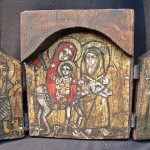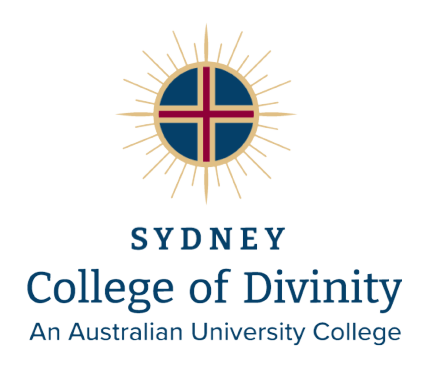Higher Degree Research at St Cyril’s:
As a leading provider of the highest quality theological education in the Orthodox tradition, St Cyril’s Higher Degree Research (HDR) awards provide opportunity to pursue advanced study in a theologically related area at the highest academic level. These accredited research degrees include the Master of Philosophy (MPhil), Doctor of Ministry (DMin), Doctor of Philosophy (PhD), and Doctor of Theology (ThD). Application and enrolment for these awards is made directly through the Office of the Dean of the Sydney College of Divinity: Please first contact the Research Director (jimh@scd.edu.au) in the Office of the Dean (SCD). You will need to complete an Application for Admission and supplementary application form in which you provide an outline of your proposed thesis. At that stage potential supervisors from St Cyril’s may be contacted. St Cyril’s offers supervision for the SCD Higher Degree Research awards in disciplines of Theology, Biblical Studies, Patristics, Science and Religion, Coptic/Arabic/Syriac literature and thought, and Church History (among others).
Please browse below to find a Higher Research Degree that suits you. Should you require any further information please do not hesitate to email St Cyril’s Director of Learning and Teaching or the Research Director of SCD. All of our degrees may be studied anywhere in the world either face to face or entirely online, facilitated by state of the art technology.

Master of Philosophy (MPhil)
The thesis will form a fresh contribution to research in the area. The thesis is to be 30,000 words maximum, including footnotes/endnotes but excluding bibliography and appendices. The period of candidature for the degree is one year full-time or two years part-time. Candidates may – subject to criteria and approval – transition their MPhil into a Doctoral degree following satisfactory completion of 20,000 words of the thesis. For more information please see the MPhil Academic Regulations or contact the Research Director of the SCD.

Doctor of Ministry (DMin)
The coursework component consists of two 18 cpt units, which must be completed with at least a High Credit average. The two units are designed to familiarize students with:
- contemporary theology of ministry at specialist level;
- contemporary scholarship in key areas of ministry at specialist level;
- applied research methodologies;
and to provide students with the tools to develop their Summary of Research Intentions into a formal Thesis Proposal. The thesis will form a fresh contribution to research in the area. The thesis is to be 60,000 words maximum, including footnotes/endnotes but excluding bibliography and appendices. The period of candidature for the degree is 3-4 years full-time or 6-8 years part-time. For more information please see the DMin Academic Regulations or contact the Research Director of the SCD.

Doctor of Philosophy (PhD)
The thesis will form a fresh contribution to research in the area. The thesis is to be 80,000 words maximum, including footnotes/endnotes but excluding bibliography and appendices. The period of candidature for the degree is 3-4 years full-time or 6-8 years part-time. For more information please see the PhD Academic Regulations or contact the Research Director of the SCD.

Doctor of Theology (ThD)
The thesis will form a fresh contribution to research in the area. The thesis is to be 80,000 words maximum, including footnotes/endnotes but excluding bibliography and appendices. The period of candidature for the degree is 3-4 years full-time or 6-8 years part-time. For more information please see the ThD Academic Regulations or contact the Research Director of the SCD.
What do a PhD (Doctor of Philosophy), ThD (Doctor of Theology) and a DMin (Doctor of Ministry) have in common and how are they different?
St Cyril’s through the SCD (Sydney College of Divinity) offers all three doctoral degrees, and in many ways they are very similar in quality and expectations:
- To receive a PhD, ThD or DMin, a research candidate has to perform at the same academic level, which is AQF (Australian Qualifications Framework) level 10. There is no difference in scholarship or quality.
- All doctoral degrees require the candidate to identify a significant research question, identify appropriate research methodology, execute a research process to explore the question, and show evidence of capacity to work independently and develop and communicate a sustained scholarly argument.
- There is no difference in volume of learning and work – each typically take 3-4 years full-time (or 6-8 years part-time).
- The PhD and ThD require the equivalent of 80,000 words of work (including footnotes), whereas the DMin requires 60,000 words (including footnotes).
- All three degrees require participation in SCD workshops and seminars to support the student/research candidate‘s progress.
- PhD, ThD and DMin are all expected to meet the AQF guidelines that specify: “The purpose of the Doctoral Degree is to qualify individuals who apply a substantial body of knowledge to research, investigate and develop new knowledge, in one or more fields of investigation, scholarship or professional practice.”
- All three degrees prepare people to teach and supervise to the highest levels, including supervising other doctoral candidates (for any doctoral degree).
- Those completing any doctoral degree are expected to produce significant and original research – although this will likely extend or expand on the work of others.
There are also unique differences between the degrees:
- PhD and ThD belong to the AQF category of Doctoral Degree (Research) and the DMin is a Doctoral Degree (Professional).
- The PhD and ThD are generally seen as preparing people for academic vocations, whereas the DMin is designed to equip practitioners in the practice of their ministry.
- A PhD or ThD is a single 80,000 word thesis, whereas a DMin is two 18 credit point coursework units or research essays (10,000 x 2) and a 60,000 word thesis (including footnotes).
- PhD is the broadest possible program: it can be interdisciplinary, including bridging a theological discipline and another discipline (e.g., sociology and New Testament), and the discipline may indeed be practical theology.
- ThD would generally be focused in one theological discipline or may bridge different theological disciplines (e.g., mission and New Testament), but would not normally be interdisciplinary outside theology. But ThDs can focus on practical theology too.
- DMin is focused in practical theology or related field (liturgy, mission, ethics, pastoral counselling or congregational studies). A DMin is not the only doctoral degree in which a student can pursue practical theology, but DMins are normally focused on practical matters, albeit perhaps drawing on other disciplines.
- Whereas a PhD or ThD may add to theoretical frameworks and discussions, a DMin may develop a ministry resource or strategy or artefact.
- The PhD, ThD, and the DMin should all contribute newness to the area(s) of research by virtue of their originality of investigative results. However, the originality of the PhD/ThD should be differentiated from the originality of the DMin. In the case of the PhD/ThD, the thesis must make an original contribution to scholarship in the field that it is researching, whether that is by virtue of its methodology and /or its evaluation of the primary or secondary sources (or both). But in the case of the DMin, the thesis should make an original contribution to the analysis of the ministry praxis that it is surveying.

